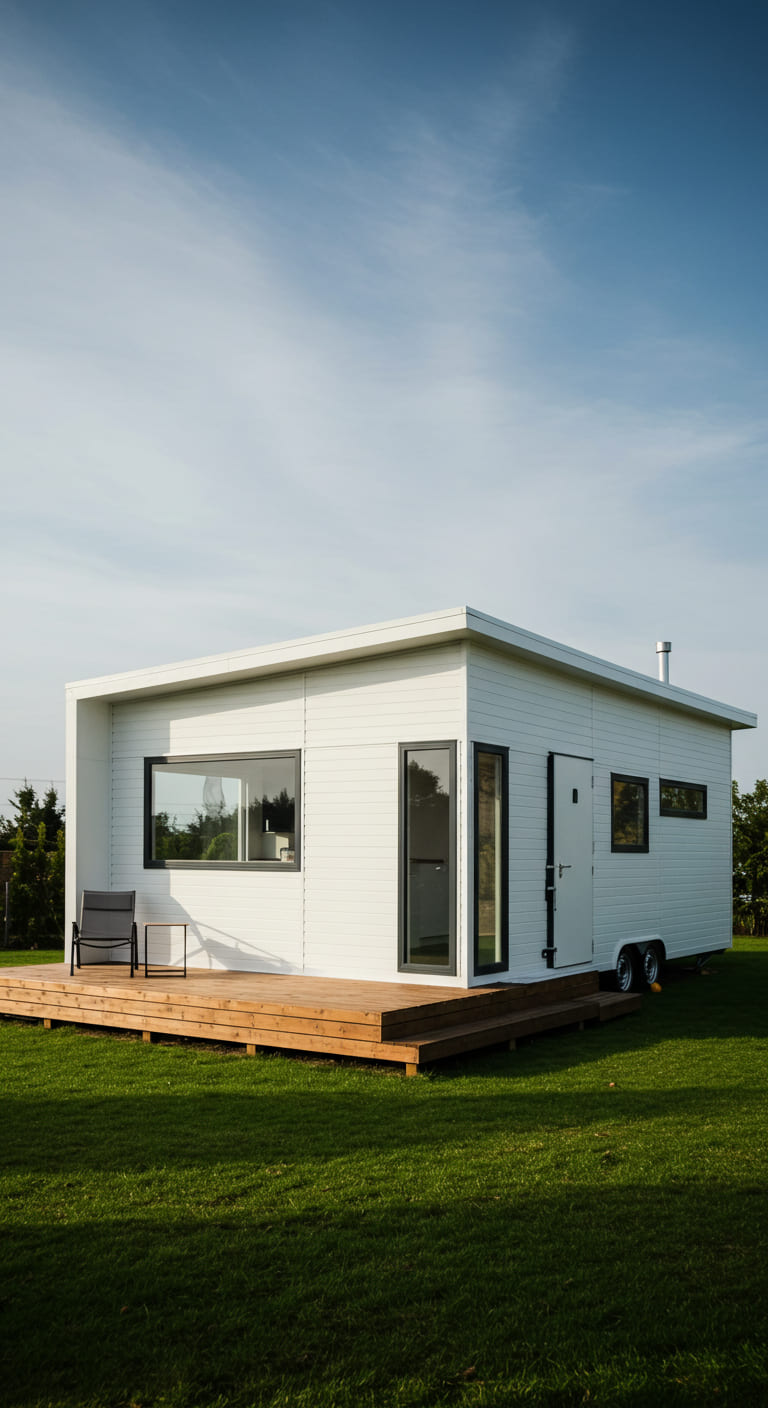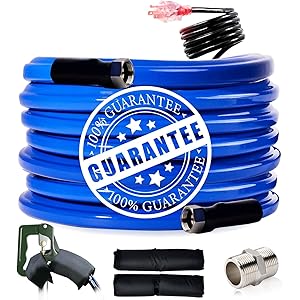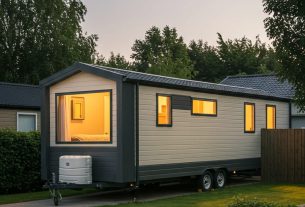As I embarked on my journey to understand the nuances of housing options, I found myself confronted with two popular choices: trailer homes and modular homes. Both represent innovative solutions for affordable housing, yet they differ significantly in construction, aesthetics, and functionality. In this article, I invite you to explore the key features of these two types of homes, share insights from my research, and encourage a fruitful discussion about their advantages and disadvantages.
Understanding the Basics: What is a Trailer Home?
A trailer home, often referred to as a mobile home, is a prefabricated structure built on a chassis, designed to be transported. The term “trailer” typically refers to units manufactured before 1976, while mobile homes were constructed after this date and adhere to stricter regulations. These homes are primarily used in mobile home parks but can also be placed on private land.
The Definition of a Modular Home
In contrast, a modular home is a type of prefabricated home that is built in sections or modules in a factory setting. Once constructed, these modules are transported to the building site and assembled on a permanent foundation. Unlike trailer homes, modular homes comply with the same building codes as traditional site-built homes, ensuring a higher standard of quality and safety.
Key Differences Between Trailer and Modular Homes
Understanding the distinctions between trailer and modular homes is crucial for making an informed decision. Here are some key features that set them apart:
- Construction Standards: Modular homes are built to the same codes as conventional homes, while trailer homes adhere to different regulations.
- Mobility: Trailer homes are designed for mobility and can be relocated, whereas modular homes are typically set on a permanent foundation.
- Value Appreciation: Modular homes tend to appreciate in value over time, much like traditional homes, while trailer homes often depreciate.
- Size and Design: Modular homes offer a wider range of designs and sizes, providing more customization options compared to trailer homes.
- Utilities and Amenities: Modular homes are usually equipped with modern amenities and utilities, giving them an edge in comfort and livability.
Construction Methods: A Closer Look
The construction process for both trailer and modular homes is fascinating and reveals much about their respective qualities.
Trailer Home Construction
Trailer homes are typically built using less expensive materials and methods. They are constructed on a steel frame with a chassis, making them lightweight and easy to transport. The manufacturing process involves assembling walls, floors, and roofs in a factory setting, followed by transportation to the designated site. The primary focus is on affordability and quick assembly.
Modular Home Construction
Modular homes are manufactured with a focus on quality and durability. They are built in sections, with each module constructed to meet specific building codes. The use of advanced technology and materials ensures that these homes are energy-efficient and can stand the test of time. Once the modules reach the site, they are assembled on a permanent foundation, providing stability and longevity.
Affordability and Financing Options
One of the most appealing aspects of both trailer and modular homes is their affordability. However, they differ in financing options and long-term costs.
Trailer Home Financing
Financing a trailer home can be challenging, as many lenders view them as personal property rather than real estate. This perception can lead to higher interest rates and shorter loan terms. Additionally, the depreciation of trailer homes can make them a risky investment.
Modular Home Financing
On the other hand, modular homes are treated as real estate, allowing for more favorable financing options. Many lenders offer traditional mortgage products, making it easier for buyers to secure funding. The appreciation potential of modular homes also makes them a more attractive investment in the long run.
Insurance Considerations
When it comes to insuring your home, the differences between trailer and modular homes become even more pronounced.
Insurance for Trailer Homes
Insuring a trailer home can be more complicated due to its classification as personal property. Many insurance companies offer mobile home insurance, but it often comes with limitations and higher premiums. Additionally, the depreciating value of trailer homes can complicate claims and coverage.
Insurance for Modular Homes
Modular homes, being classified as real estate, typically enjoy broader insurance coverage options. Homeowners can secure conventional homeowners insurance, which often includes liability coverage and protection against various risks. This added layer of security provides peace of mind for homeowners.
Community and Lifestyle
The community aspect and lifestyle associated with each type of home can also influence your decision.
Trailer Home Communities
Trailer homes are often situated in mobile home parks, which can foster a sense of community among residents. While some parks offer amenities such as pools and recreational facilities, they may also have restrictions on modifications and landscaping. The lifestyle can be appealing for those seeking a tight-knit community, but it may lack the privacy and autonomy found in traditional neighborhoods.
Modular Home Communities
Modular homes are usually placed in residential neighborhoods, allowing for a more traditional living experience. Homeowners can enjoy greater freedom to personalize their properties and engage with neighbors. Additionally, modular home communities often provide access to better schools, amenities, and services, contributing to an enhanced quality of life.
Environmental Impact and Energy Efficiency
Another critical consideration in today’s housing market is the environmental impact of the homes we choose.
Environmental Considerations for Trailer Homes
Trailer homes are often criticized for their environmental impact. The materials used in construction may not be energy-efficient, leading to higher utility costs and a larger carbon footprint. Additionally, the mobility of these homes can contribute to urban sprawl and land use concerns.
Environmental Considerations for Modular Homes
In contrast, modular homes are typically more energy-efficient, thanks to modern building practices and materials. Many manufacturers incorporate sustainable features, such as solar panels, energy-efficient windows, and high-quality insulation. This focus on sustainability not only benefits the environment but also helps homeowners save on energy costs in the long run.
Real-Life Examples: Success Stories
To further illustrate the differences between trailer and modular homes, let’s explore some real-life examples.
Case Study: A Successful Modular Home Development
In 2019, a modular home community was developed in a suburban area, offering affordable housing options for families. The project focused on energy efficiency and sustainability, incorporating solar panels and green building materials. Residents reported a strong sense of community and satisfaction with their homes, highlighting the long-term value of their investment.
Case Study: Challenges Faced by Trailer Home Residents
Conversely, a trailer home park in a rural area faced significant challenges due to its aging infrastructure. Many residents experienced issues with maintenance and safety, leading to a decline in property values. This case underscores the potential pitfalls of trailer home living, especially in poorly managed parks.
Conclusion: Making the Right Choice for You
As I wrap up this exploration of trailer and modular homes, I hope I’ve provided valuable insights that will help you make an informed decision. Both housing options come with unique advantages and disadvantages, and the right choice ultimately depends on your individual needs and lifestyle preferences.
In summary, here are the key takeaways:
- Trailer homes are typically more affordable but may come with limitations in financing and insurance.
- Modular homes offer better construction standards, appreciation potential, and insurance options.
- Community and lifestyle considerations can greatly impact your living experience.
- Environmental impact and energy efficiency are crucial factors in today’s housing market.
I encourage you to join the discussion! Share your experiences, thoughts, and questions about trailer and modular homes in the comments below. If you found this article helpful, consider signing up for our newsletter for more insights on housing and lifestyle choices. Don’t forget to share this article with friends and on social media to spread the knowledge!
Frequently Asked Questions
Q1: Can I move a modular home once it’s set up?
A1: Modular homes are designed to be permanent structures and are not intended for frequent relocation, unlike trailer homes.
Q2: Are trailer homes safe during severe weather?
A2: Trailer homes can be vulnerable to severe weather, particularly tornadoes or hurricanes, due to their lightweight construction.
Q3: What are the average costs of modular homes compared to trailer homes?
A3: While modular homes can be more expensive upfront, they often appreciate in value, making them a better long-term investment.
Q4: Can I customize a modular home?
A4: Yes, modular homes offer a wide range of customization options, from floor plans to finishes.
Q5: What is the typical lifespan of a trailer home?
A5: Trailer homes generally have a shorter lifespan than modular homes, often lasting 10-30 years depending on maintenance and quality.
REHOSEUP 30FT,15FT, Heated Water Hose for RV,-45 ℉ Antifreeze Heated Drinking Garden Water Hose,Electrically Heated Garden Hoses, Rv Accessories,Rv,Rv Water Hose,Auto Accessory (30FT)
$64.59 (as of November 16, 2025 07:53 GMT -03:00 - More infoProduct prices and availability are accurate as of the date/time indicated and are subject to change. Any price and availability information displayed on [relevant Amazon Site(s), as applicable] at the time of purchase will apply to the purchase of this product.)
Sign up for our newsletter and stay up to date with exclusive news
that can transform your routine!





